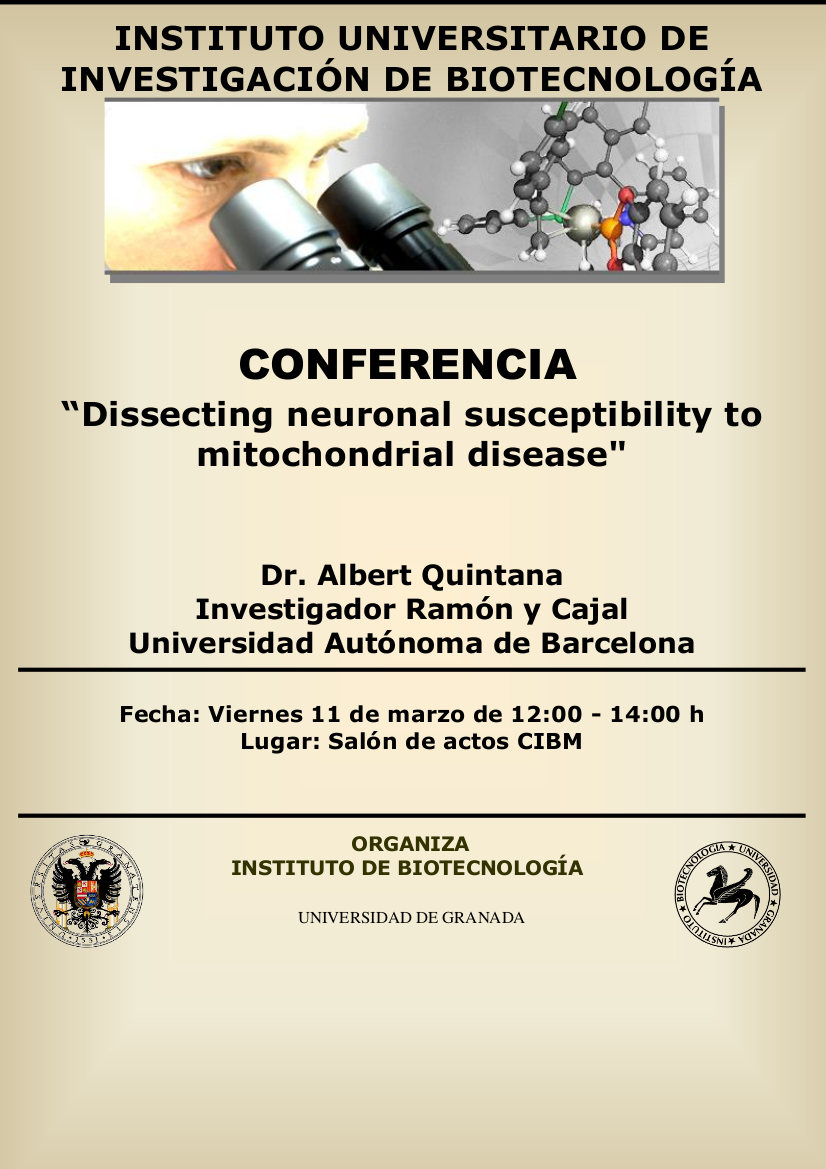Noticias
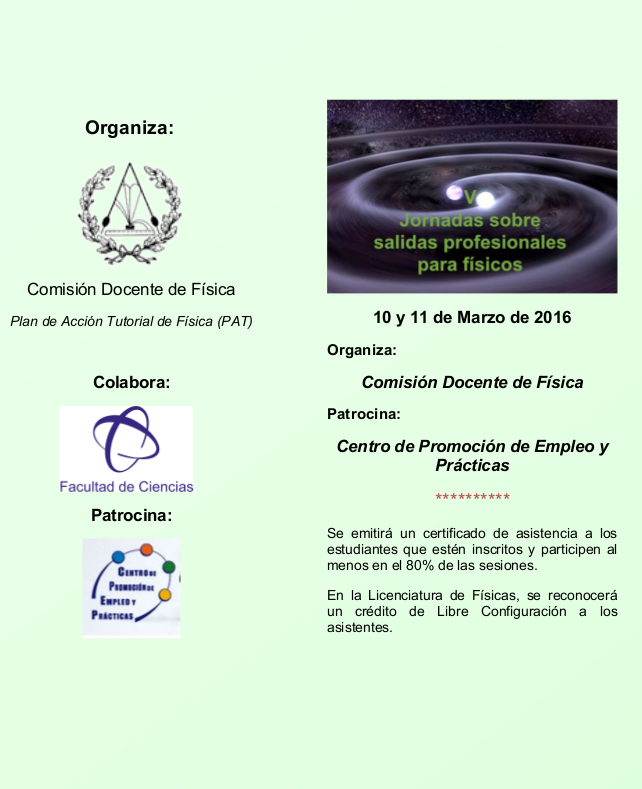 El propósito de estas jornadas es la presentación del amplio abanico profesional existente para los matriculados en el Grado y Licenciatura de Física.
El propósito de estas jornadas es la presentación del amplio abanico profesional existente para los matriculados en el Grado y Licenciatura de Física.
Se divide en tres sesiones que abarcan desde la docencia, investigación, creación de empresas hasta el empleo público. Cada una de estas sesiones se afronta desde distintas áreas de conocimiento. Se pretende orientar, así como dar respuesta a las dudas e incertidumbres laborales que tienen los alumnos en los últimos cursos de los estudios universitarios.
Jueves 10 de Marzo de 2016 de 9 a 14 h Salón de Grados del Edificio Mecenas
Jueves 10 de Marzo de 2016 de 16:30 a 19:30h Salón de Grados de la Facultad de Ciencias
Viernes 11 de marzo de 2016 de 9:00 a 11:30h Salón de Grados de la Facultad de Ciencias
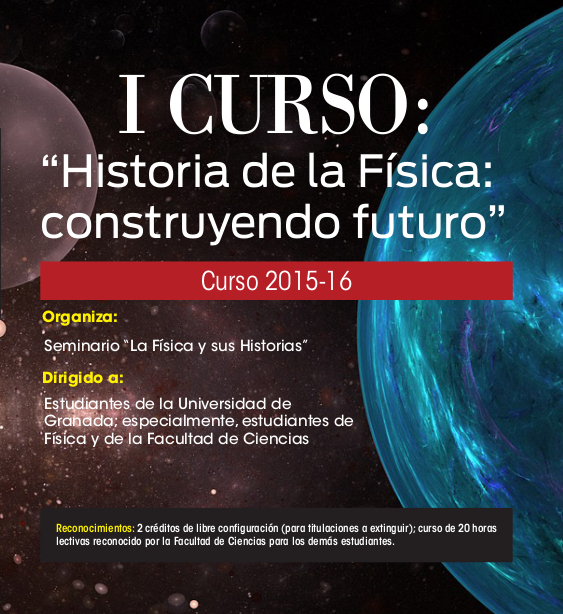 Organiza: Seminario "La Física y sus Historias"
Organiza: Seminario "La Física y sus Historias"
Dirigido a: Estudiantes de la Universidad de Granada; especialmente, estudiantes de Física y de la Facultad de Ciencias
Reconocimientos: 2 créditos de libre configuración (para titulaciones a extinguir); curso de 20 horas lectivas reconocido por la Facultad de Ciencias para los demás estudiantes.
Los pecados de Newton
Eduardo Battaner López | Departamento de Física Teórica y del Cosmos.
Fecha: Viernes 6 de noviembre 2015
Hora: 12:00 h
Lugar: Aula F-1.
Antigüedad clásica y medieval: ¿Edades oscuras para la Ciencia (Física)?
José Ramón Jiménez Cuesta | Departamento de Óptica.
Fecha: Viernes 11 de diciembre 2015
Hora: 12:00 h
Lugar: Aula F-1.
Un fascinante viaje en busca de los ingredientes fundamentales de la Naturaleza
Antonio Bueno Villar | Departamento de Física Teórica y del Cosmos.
Fecha: Viernes 15 de enero 2016
Hora: 12:00 h
Lugar: Aula F-1.
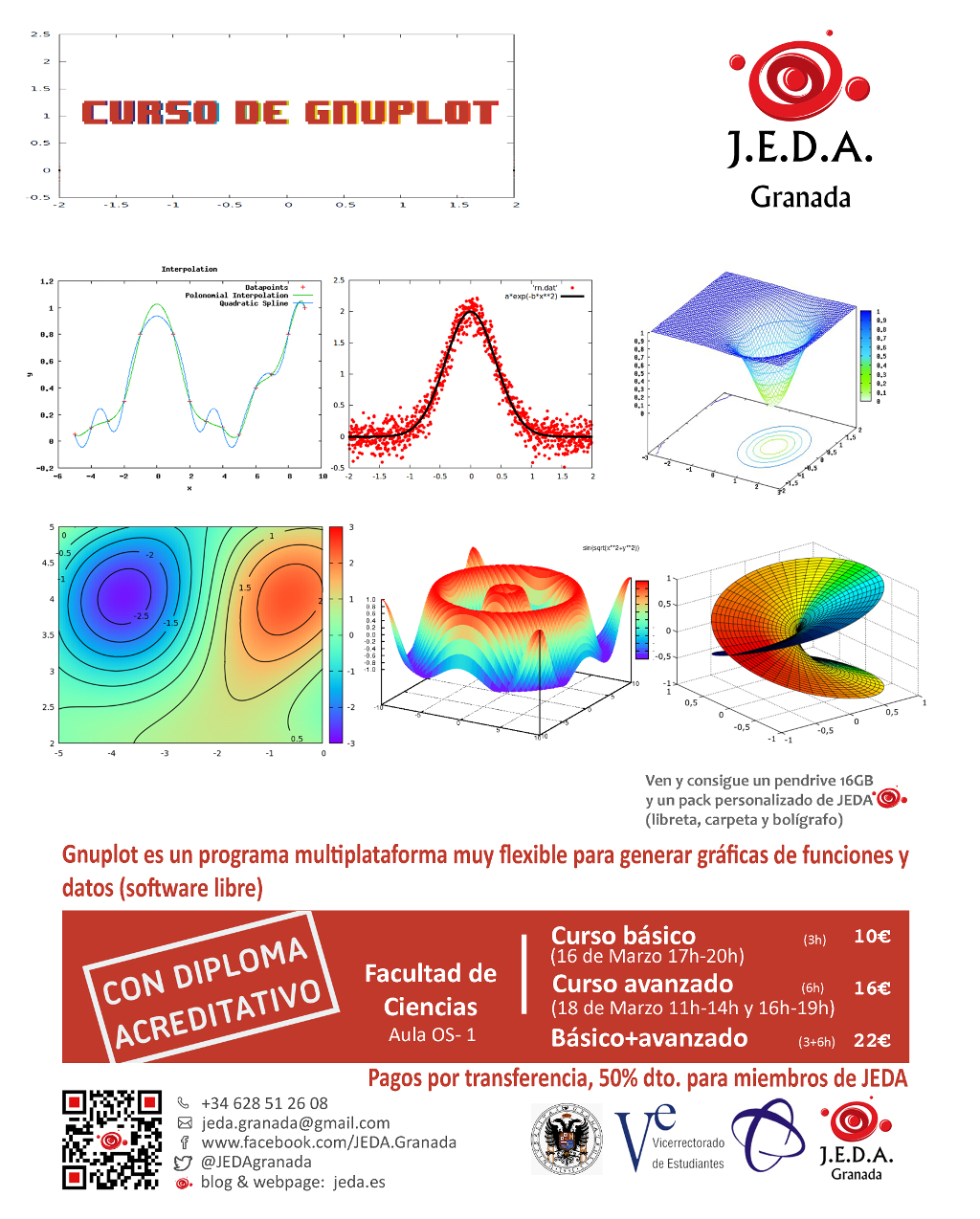 Lugar: Facultad de Ciencias, Aula OS-1
Lugar: Facultad de Ciencias, Aula OS-1
Fecha: 16 de marzo (17-19 h) y 18 de marzo (11-14 h y 16-19 h)
Organiza: JEDA
Colaboran: Universidad de Granada, Vicerrectorado de Estudiantes y Facultad de Ciencias
Gnuplot es un programa multiplataforma (software libre) muy flexible para generar gráficas de funciones y datos. Si estás cansado de que tus curvas no se ajusten, aburrido de recurrir siempre al teorema del punto gordo, o harto de tener que usar una silla para dibujar rectas... ¡nosotros te lo solucionamos! Si eres estudiante de una disciplina científico-técnica, te resultará vital el manejo de Gnuplot para la elaboración de tus informes de prácticas.
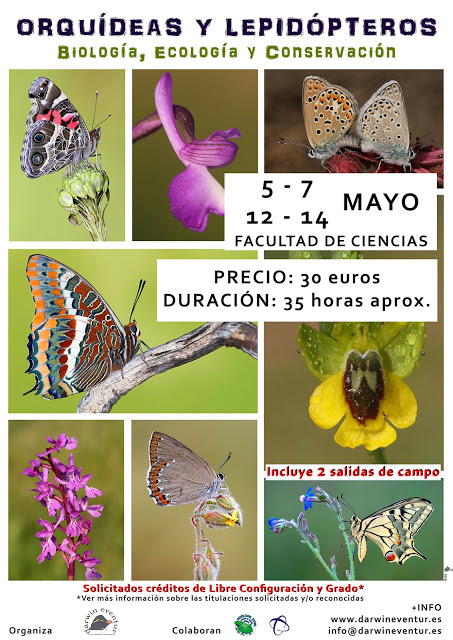 Fecha: del 5 al 7 y del 12 al 14 de Mayo de 2016
Fecha: del 5 al 7 y del 12 al 14 de Mayo de 2016
Lugar: Facultad de Ciencias de Granada.
El curso durará aproximadamente 35 horas.
El precio es de 30 euros, pero si eres socio de la Asociación de Biología S.A.B.-Granada el curso te sale a 28 euros!!!
Este curso va dirigido a todo el público, y para aquellas personas que estén estudiando alguna titulación a extinguir que aún le falten créditos de libre configuración también hemos solicitado el reconocimiento del curso en algunas Facultades/Escuelas de la Universidad de Granada.
Para aquellos estudiantes de GRADO se ha solicitado el reconocimiento por 1 crédito ECTS para todas aquellas titulaciones que están relacionadas con la temática tratada en el curso.
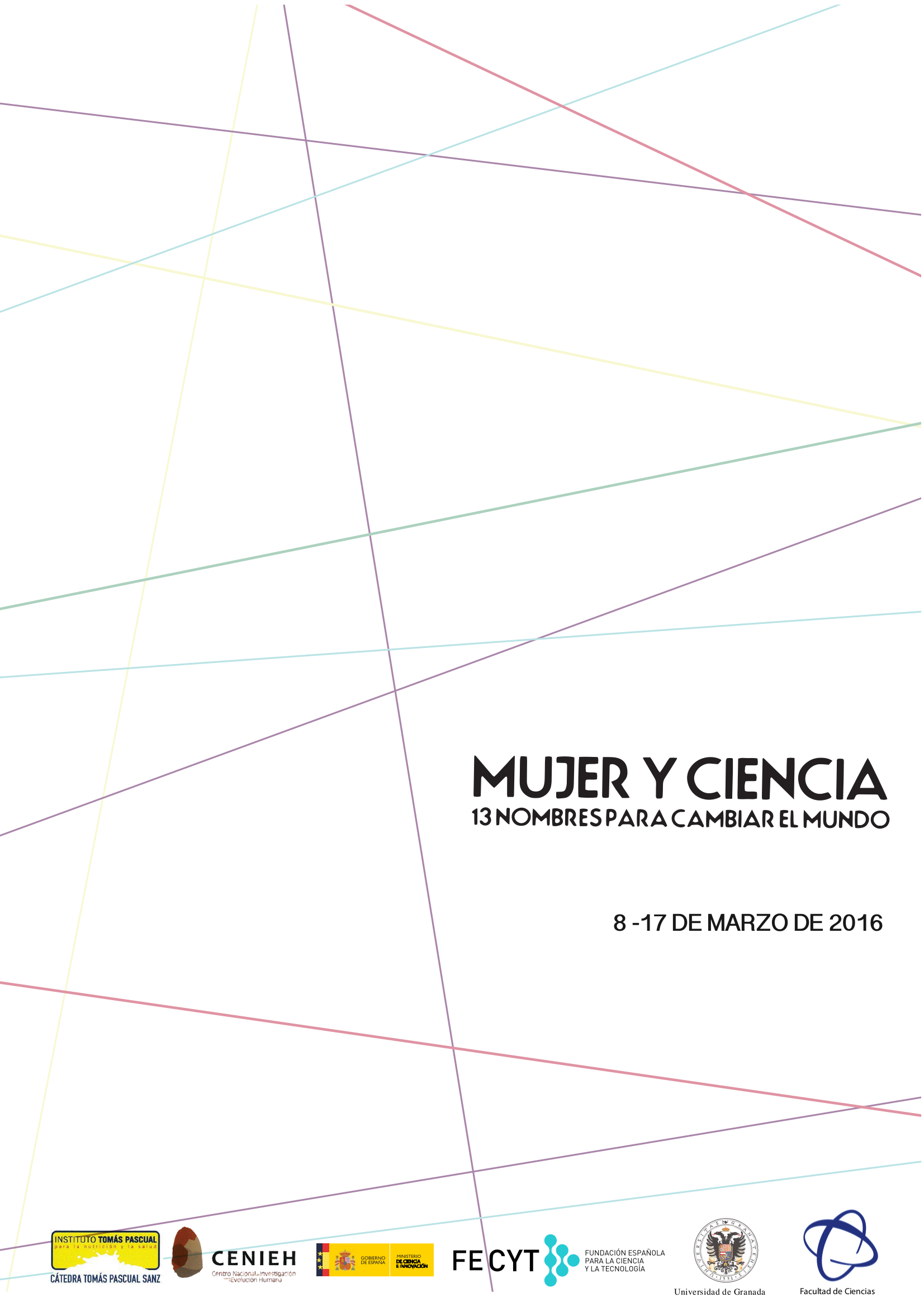 Desde el Decanato de la Facultad, se pone en conocimiento de todo el Personal Docente e Investigador que, con motivo del Día Internacional de la Mujer, la Facultad de Ciencias participa en los actos que se describen a continuación:
Desde el Decanato de la Facultad, se pone en conocimiento de todo el Personal Docente e Investigador que, con motivo del Día Internacional de la Mujer, la Facultad de Ciencias participa en los actos que se describen a continuación:
Mesa redonda y exposición
El Salón de Actos del Edificio Mecenas acoge el 8 de marzo, a las 18 horas, la mesa redonda “Mujeres y la investigación en el área de ciencias experimentales”, organizada por Facultad de Ciencias, la Unidad de Cultura Científica y la Facultad de Filosofía y Letras, en la que participan:
- Purificación Fenoll Hach Alí. Catedrática de Mineralogía.
- Araceli González Campaña. Investigadora Ramón y Cajal. Departamento de Química Orgánica.
- Yolanda Castro Díez. Catedrática de Física Aplicada.
- Elvira Romera Gutiérrez. Profesora Titular de Física Atómica, Molecular y Nuclear.
- Modera: Mª Gracia Bagur González. Vicedecana de Investigación, actividades culturales y científicas de la Facultad de Ciencias.
Inauguración de la exposición “Mujer y Ciencia: 13 nombres para cambiar el mundo”
Organizada por la Cátedra “Tomás Pascual Sanz-CENIEH”, con la colaboración de la Fundación Española para la Ciencia y la Tecnología (FECYT)”. Muestra el quehacer investigador y solidario de mujeres cuya vocación por el saber, entendido como producto humano para y por la humanidad, es el motor de su trabajo.
Flora de Pablo, Adela Cortina, Jane Goodall, Susan George, Vandana Shiva, Lourdes J. Cruz, Tebello Nyokong, Hayat Zirari, Dora Barrancos, Jenny de la Torre, Concepción Campa, Ana Mª Cetto y Elinor Ostrom son los trece nombres de esta exposición, mujeres que desde las más diversas disciplinas, como la Medicina, la Economía, la Filosofía o la Física, entregan mucho más que una jornada laboral: crean redes, comunican, acompañan y denuncian, promueven y, en definitiva, nos demuestran que los avances científicos son válidos, merecen la pena, cuando van acompañados de la firme convicción de que la ciencia excede las probetas y los despachos y se expande al ancho mundo.
Todas ellas se han despojado de su uniforme de trabajo y han querido mostrarse tal cual son, como mujeres que trabajan con tesón para que el fruto de su labor sea útil. Rostros amables, sonrientes, amigables, nos hablan de vidas entregadas, de ideales compartidos, de utopías en camino. No están todas las que son, pero todas las que están nos recuerdan, infatigables, que la ciencia es un producto del esfuerzo humano y, como tal, su planteamiento, nudo y desenlace tienen una base común, el bien hacia las personas.
Exposición “Mujer y Ciencia: 13 nombres para cambiar el mundo”. Sala de Exposiciones de la Facultad de Ciencias, del 8 al 17 de marzo, con horario de 11 a 13 horas y de 17 a 19 horas




